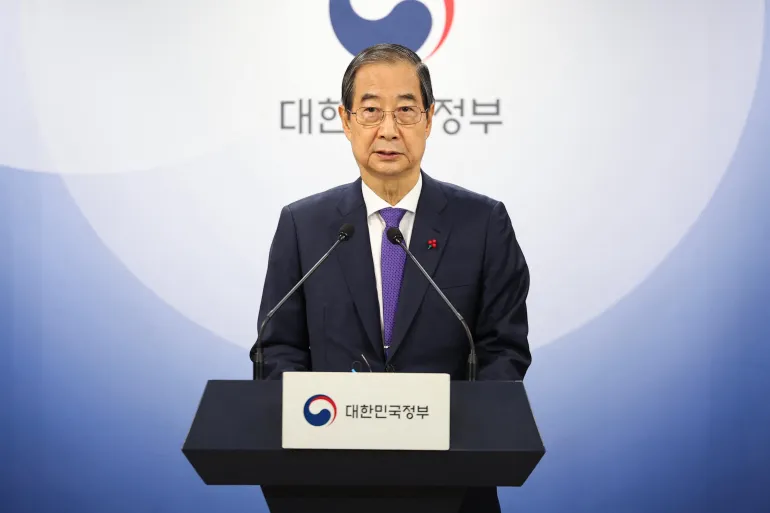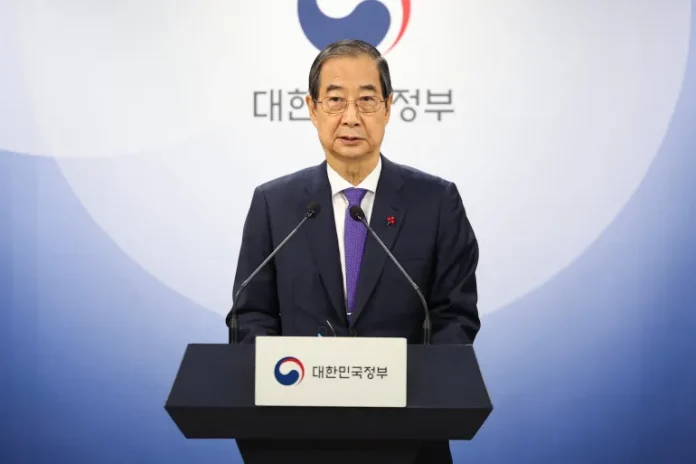South Korea’s political crisis has deepened as the main opposition Democratic Party moves to impeach acting President Han Duck-soo. The motion, filed on Thursday, accuses Han of neglecting his duty to appoint three judges to the Constitutional Court. These appointments are critical as the court prepares to review rebellion charges against impeached President Yoon Suk-yeol.
Park Sung-joon, a Democratic Party Member of Parliament, announced the motion to reporters at the National Assembly, stating, “We have filed the motion and will report it to the plenary session today. We will put it to a vote tomorrow.”
The political upheaval began on December 3 when President Yoon declared martial law, a move that caused widespread controversy. Parliament subsequently impeached Yoon on December 14, but the Constitutional Court must uphold the decision to finalize his removal.
Judicial Deadlock and Opposition’s Demands
The Constitutional Court currently lacks three judges, which has stalled its decision-making process. While the court can technically operate with six members, a single dissenting vote would result in Yoon’s reinstatement. The opposition-controlled National Assembly has passed motions urging Han to appoint the missing judges, but Han has refused, insisting that bipartisan agreement is necessary before he proceeds.
Han’s stance has drawn sharp criticism from the Democratic Party. Park Chan-dae, the party’s floor leader, argued that Han’s refusal demonstrates his lack of commitment to upholding the Constitution. “Han does not have the will or qualification to fulfill his duties,” Park declared during a press briefing.
In response, Han defended his decision, stating that as acting president, his role is to maintain stability and avoid exercising presidential powers, such as judicial appointments, without consensus.
Potential Historical Impeachment

If the impeachment motion against Han passes during Friday’s vote, it will mark the first time an acting president has been impeached in South Korea’s democratic history. Finance Minister Choi Sang-mok is expected to take over as acting president if the motion is successful.
The crisis escalated earlier this week when Han rejected the opposition’s proposal for special investigative bodies to probe President Yoon’s martial law declaration and corruption allegations against his wife, Kim Keon-hee. This refusal prompted the Democratic Party to pursue Han’s impeachment.
The impeachment motion accuses Han of intentionally avoiding investigations into the rebellion and blocking the appointments of Constitutional Court judges. The opposition contends that these actions violate Han’s duty as a public official to uphold the law and serve the public interest.
Meanwhile, President Yoon has repeatedly evaded law enforcement inquiries regarding the rebellion charges. The Corruption Investigation Office for High-Ranking Officials has summoned him to appear for questioning this Sunday after he failed to comply with a previous request on Christmas Day.
As tensions rise, the Democratic Party’s push to impeach Han underscores the growing political instability in South Korea, with significant implications for its governance and democratic institutions.



